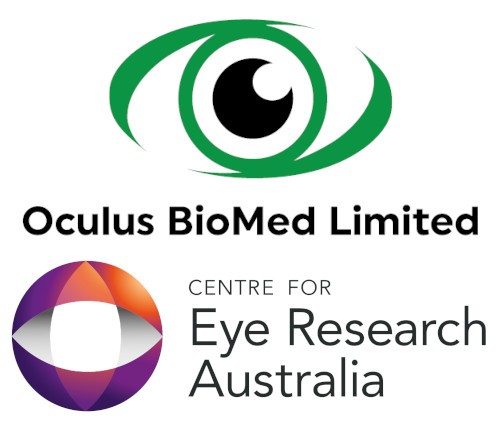Industry News
OBM and CERA Collaborate to Revolutionise Diabetic Macular Edema Treatment
 In a groundbreaking partnership, Oculus BioMed (OBM), a biotechnology company specialising in ophthalmology, has joined forces with the Centre for Eye Research Australia (CERA) to pioneer a transformative approach to combat diabetic macular edema (DME). This collaboration aims to revolutionise the treatment landscape for diabetic eye diseases through a novel genetic therapy known as "SwitchGene."
In a groundbreaking partnership, Oculus BioMed (OBM), a biotechnology company specialising in ophthalmology, has joined forces with the Centre for Eye Research Australia (CERA) to pioneer a transformative approach to combat diabetic macular edema (DME). This collaboration aims to revolutionise the treatment landscape for diabetic eye diseases through a novel genetic therapy known as "SwitchGene."
The project centers around the development of an innovative, less-invasive anti-VEGF therapy, "SwitchGene," which diabetic patients can easily self-administer via eye drops. Unlike the existing anti-VEGF treatment methods, which involve costly and potentially risky intraocular injections, "SwitchGene" seeks to provide a patient-friendly alternative. These injections often lead to stress, discomfort, and can strain public healthcare systems. To address these challenges and the unmet clinical needs associated with diabetic eye disease, the project focuses on introducing an anti-VEGF gene at the posterior of the eye using an adeno-associated virus (AAV) delivery system, which can be activated on demand through a simple eye drop.
The core objective of this collaboration is to validate the efficacy of the "SwitchGene" technology in animal models relevant to diabetic retinopathy and retinal neovascularization.
Professor Keith Martin, Managing Director of CERA, emphasized the significance of this partnership. He stated, "The collaboration with Oculus BioMed will accelerate the research efforts of CERA's Genetic Engineering team, led by Associate Professor Rick Liu, to develop 'next-generation' gene therapies tailored to individuals living with eye diseases. This collaboration will enable us to refine our technology further in the laboratory, bringing us closer to our goal of clinical trials."
OBM's CEO, Andrew Coloretti, shared his enthusiasm about this remarkable collaboration. He expressed, "We are extremely excited to embark on this partnership, which is focused on developing a safe and targeted approach to eye gene therapy. This initiative is a world-leading endeavor and perfectly complements our existing diversified ophthalmic portfolio."
Both Oculus BioMed and CERA have committed to jointly funding the project. A steering committee, with equal representation from both organizations, will oversee the research, risk management, and the development and protection of intellectual property.
This collaboration between OBM and CERA represents a significant stride toward innovative, patient-centric solutions for diabetic macular edema, with the potential to transform the landscape of ophthalmic treatment. The "SwitchGene" project holds promise as a groundbreaking advancement in the field of ophthalmology, offering new hope to patients with diabetic eye diseases worldwide.



